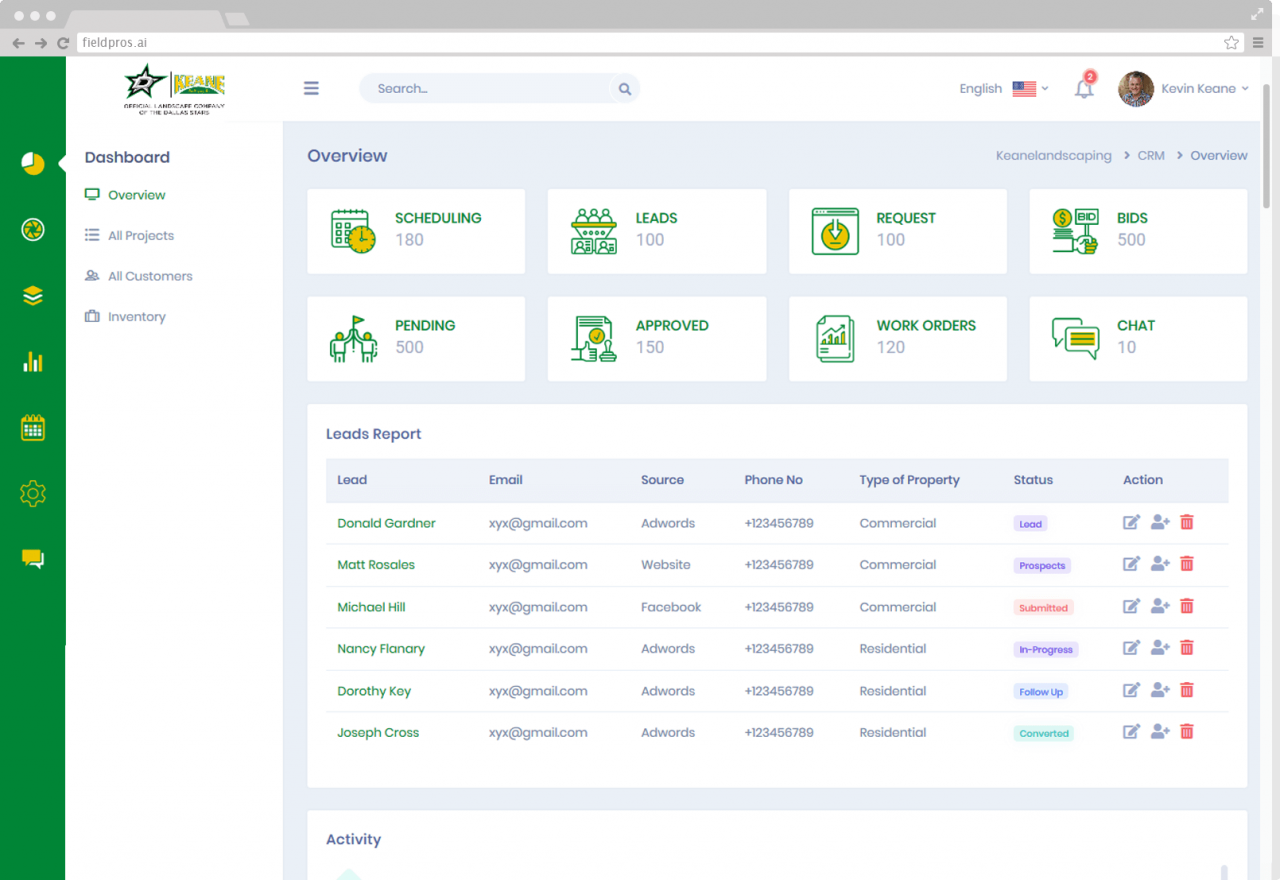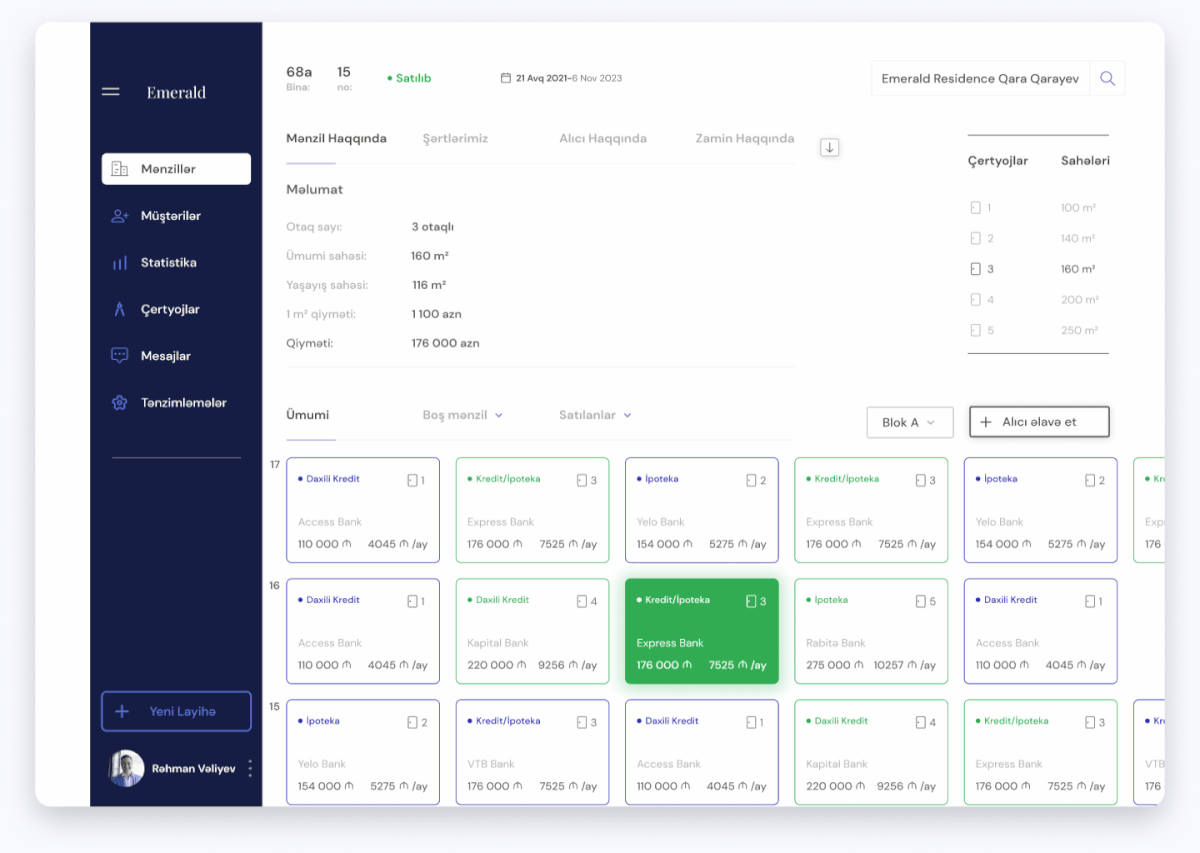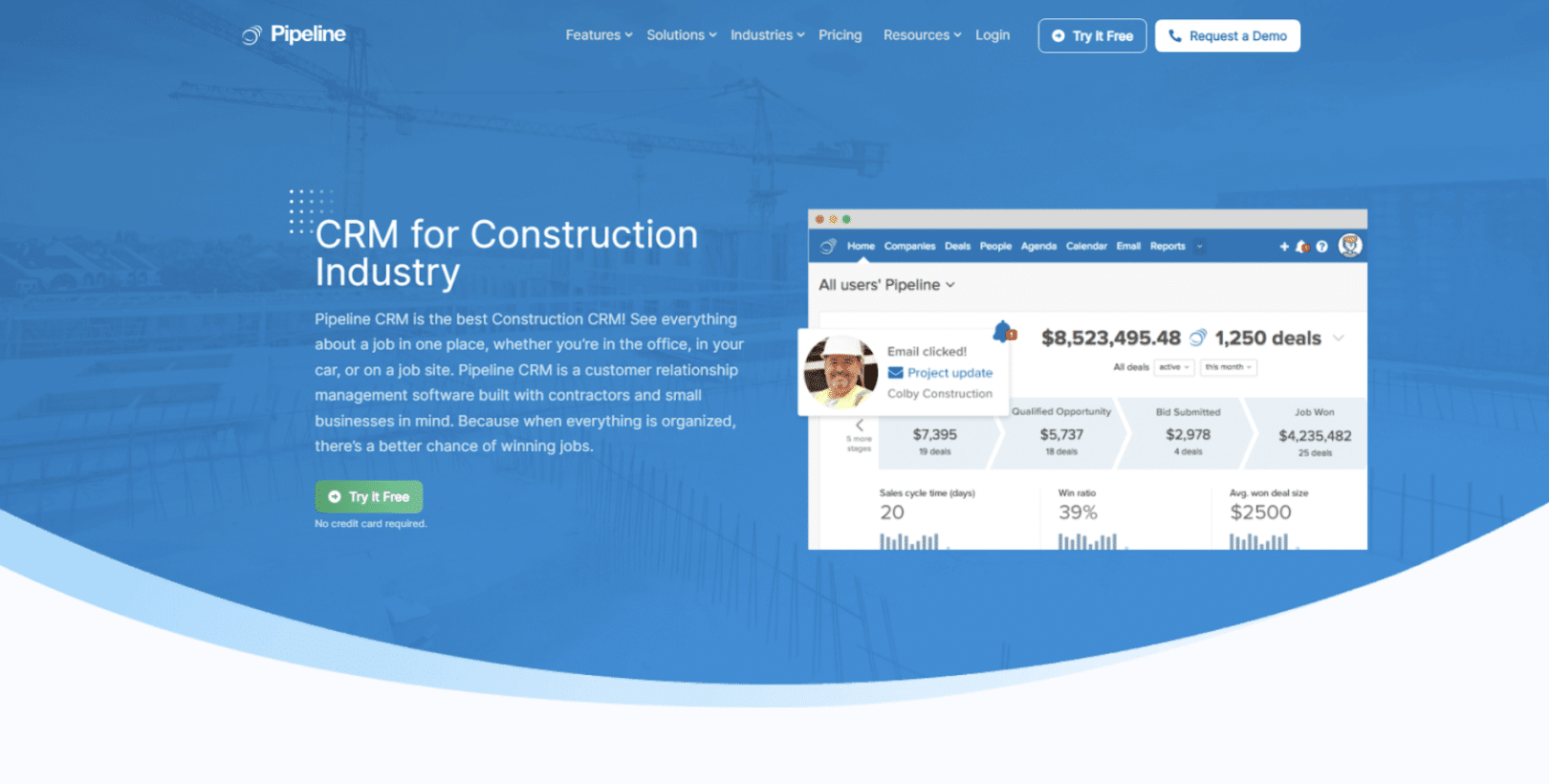Crm system for construction company – Delving into the realm of CRM systems for construction companies, this comprehensive guide unveils the transformative potential of these tools. By seamlessly integrating project management, customer relationships, and business operations, CRM systems empower construction firms to achieve unparalleled efficiency and success.
The content of the second paragraph that provides descriptive and clear information about the topic
Overview of CRM Systems for Construction Companies

Customer relationship management (CRM) systems are software applications that help businesses manage their interactions with customers and potential customers. In the construction industry, CRM systems can be used to track leads, manage projects, and build relationships with clients.
There are many benefits to implementing a CRM system for a construction company. These benefits include:
- Improved project management: CRM systems can help construction companies track the progress of their projects, identify potential risks, and communicate with team members and clients.
- Enhanced customer relationships: CRM systems can help construction companies build stronger relationships with their clients by providing them with personalized service and support.
- Increased efficiency: CRM systems can help construction companies automate many of their tasks, such as lead generation, scheduling appointments, and sending invoices. This can free up time for employees to focus on more important tasks.
- Improved profitability: CRM systems can help construction companies improve their profitability by increasing sales, reducing costs, and improving customer satisfaction.
Here are some examples of how CRM systems can be used to improve project management, customer relationships, and overall business operations in the construction industry:
- Project management: CRM systems can be used to track the progress of projects, identify potential risks, and communicate with team members and clients. This can help construction companies avoid delays, stay on budget, and meet their deadlines.
- Customer relationships: CRM systems can be used to track customer interactions, manage customer data, and provide personalized service and support. This can help construction companies build stronger relationships with their clients and increase customer satisfaction.
- Business operations: CRM systems can be used to automate many of the tasks that are involved in running a construction business, such as lead generation, scheduling appointments, and sending invoices. This can free up time for employees to focus on more important tasks, such as building relationships with clients and growing the business.
CRM systems are an essential tool for construction companies that want to improve their project management, customer relationships, and overall business operations.
Key Features of a CRM System for Construction Companies

A robust CRM system is essential for construction companies to streamline their operations, improve customer relationships, and increase profitability. Here are some key features to look for when selecting a CRM system for your construction business:
Project Management Capabilities
Effective project management is crucial for construction companies. A CRM system with project management capabilities allows you to track project progress, manage tasks, assign resources, and collaborate with team members in real-time. This helps ensure projects are completed on time, within budget, and to the desired quality.
Contact and Lead Management
A CRM system helps you manage your contacts and leads effectively. It provides a centralized platform to store and track customer information, including contact details, project history, and communication logs. This enables you to build stronger relationships with your customers and nurture leads throughout the sales pipeline.
Document Management
Construction projects generate a significant amount of documentation, including contracts, plans, specifications, and invoices. A CRM system with document management capabilities allows you to store, organize, and share these documents securely. This eliminates the need for physical storage and makes it easy to access project-related documents whenever needed.
Integration with Other Software
Your CRM system should integrate seamlessly with other software applications used by your construction company, such as accounting, project management, and collaboration tools. This integration ensures that data flows smoothly between different systems, eliminating the need for manual data entry and reducing errors.
Mobile Accessibility
In the construction industry, it’s essential to have access to project and customer information on the go. A CRM system with mobile accessibility allows you to manage your business from anywhere, using your smartphone or tablet. This enables you to stay connected with your team, track project progress, and respond to customer inquiries in real-time.
3. Implementation and Customization
Implementing a CRM system in a construction company involves several steps:
1. Planning
Define project goals, objectives, and system requirements.
2. Vendor selection
Research and evaluate CRM vendors based on features, cost, and compatibility with existing systems.
3. Data migration
Import existing customer and project data into the new CRM system.
4. Configuration
Customize the system to align with specific business processes and workflows.
5. Training
Provide comprehensive training to users on system functionality and best practices.
6. Go-live
Launch the CRM system and monitor its performance to ensure successful adoption.Customization is crucial to tailor the CRM system to the unique needs of the construction company. This includes:
Data fields
Create custom fields to capture industry-specific data, such as project type, bid status, and equipment inventory.
Workflows
Automate business processes, such as lead generation, project tracking, and invoicing.
Integrations
Connect the CRM system with other software applications, such as accounting, project management, and CAD tools.To ensure a successful implementation, consider the following tips:
Get buy-in from stakeholders
Involve key users in the planning and implementation process to gain their support and ensure adoption.
Establish clear goals and objectives
Define specific metrics to measure the success of the CRM implementation.
Provide ongoing training and support
Regularly update users on system enhancements and provide technical assistance as needed.
Best Practices for Using a CRM System in Construction: Crm System For Construction Company

To maximize the benefits of a CRM system in construction, it is crucial to adopt best practices that ensure effective setup, usage, and data analysis. These practices include:
Setting up and Maintaining the System
Establishing a solid foundation for your CRM system involves:
- Clear System Objectives:Define the specific goals and objectives you aim to achieve with the CRM system.
- Customized Data Fields:Tailor the system’s data fields to align with your construction-specific requirements.
- Regular System Updates:Keep the system up-to-date with the latest features and security patches to ensure optimal performance.
Training Staff on System Usage, Crm system for construction company
Empowering your team with proper training is essential for successful CRM system adoption:
- Comprehensive Training Programs:Provide comprehensive training sessions that cover all aspects of system functionality.
- Customized Training Materials:Develop training materials tailored to the specific roles and responsibilities of your staff.
- Regular Refresher Courses:Conduct periodic refresher courses to reinforce knowledge and address any emerging system updates.
Utilizing the System for Data Analysis and Reporting
Leveraging the CRM system’s analytical capabilities can provide valuable insights for your construction business:
- Customized Reports:Create customized reports that provide real-time visibility into key performance indicators (KPIs).
- Trend Analysis:Analyze historical data to identify trends and patterns that can inform decision-making.
- Forecasting and Projections:Utilize data analysis to make informed forecasts and projections for future business performance.
Comparison of CRM Systems for Construction Companies
Choosing the right CRM system for your construction company is essential for streamlining operations, improving customer relationships, and increasing profitability. Here’s a comparison of different CRM systems designed specifically for the construction industry:
Key Features
When evaluating CRM systems, consider the following key features:
- Project Management:Track projects, assign tasks, and monitor progress.
- Lead Management:Capture and qualify leads, manage sales pipelines, and nurture relationships.
- Customer Relationship Management:Store and manage customer information, track interactions, and provide personalized experiences.
- Document Management:Centralize and organize project-related documents, contracts, and plans.
- Integration with Other Software:Connect with accounting, project management, and other essential business applications.
Pricing and User Reviews
The following table provides an overview of key features, pricing, and user reviews for popular CRM systems for construction companies:
| CRM System | Key Features | Pricing | User Reviews |
|---|---|---|---|
| Buildertrend | Project Management, Lead Management, Customer Relationship Management, Document Management | Starts at $299/month | “Excellent project management capabilities and easy-to-use interface.” |
| Procore | Project Management, Collaboration, Document Management, Quality Control | Starts at $499/month | “Robust platform with a wide range of features and integrations.” |
| JobNimbus | Lead Management, Customer Relationship Management, Invoicing, Scheduling | Starts at $99/month | “Affordable option with a user-friendly design and strong lead generation tools.” |
Pros and Cons
Each CRM system has its strengths and weaknesses:
Buildertrend
- Pros:Intuitive interface, comprehensive project management features, strong customer support.
- Cons:Limited integration options, can be expensive for small businesses.
Procore
- Pros:Powerful project collaboration tools, advanced quality control features, extensive integrations.
- Cons:Complex interface, higher pricing than competitors.
JobNimbus
- Pros:Affordable pricing, user-friendly interface, strong lead generation capabilities.
- Cons:Limited project management features, fewer integrations compared to other systems.
Ultimately, the best CRM system for your construction company depends on your specific needs and budget. By comparing the features, pricing, and user reviews of different systems, you can make an informed decision that will support your business goals.
Case Studies and Success Stories

To further demonstrate the effectiveness of CRM systems in the construction industry, let’s explore real-world examples of construction companies that have successfully implemented them.
These case studies showcase the challenges faced, the solutions implemented, and the tangible results achieved, providing valuable insights into how CRM systems can transform construction operations.
ABC Construction Company
ABC Construction, a leading commercial construction firm, faced challenges in managing customer relationships and tracking project progress effectively. They implemented a CRM system that integrated with their existing project management software, providing a centralized platform for all customer and project data.
- Improved customer satisfaction by 25% through personalized communication and proactive follow-ups.
- Reduced project delays by 10% through better coordination and collaboration among project teams.
- Increased sales conversion rates by 15% by identifying and nurturing high-potential leads.
XYZ Construction Group
XYZ Construction Group, a residential construction company, struggled to manage its growing client base and streamline communication. They implemented a CRM system that automated lead generation and qualification, allowing their sales team to focus on converting qualified leads into paying customers.
- Increased lead generation by 30% through targeted marketing campaigns and automated lead capture forms.
- Improved sales productivity by 20% by providing sales reps with real-time access to customer information and project updates.
- Reduced administrative costs by 15% through automated workflows and centralized document management.
Outcome Summary
In conclusion, implementing a CRM system tailored to the unique needs of a construction company can revolutionize its operations. By leveraging the insights and capabilities provided by these systems, construction firms can enhance project delivery, cultivate stronger customer relationships, and drive overall business growth.